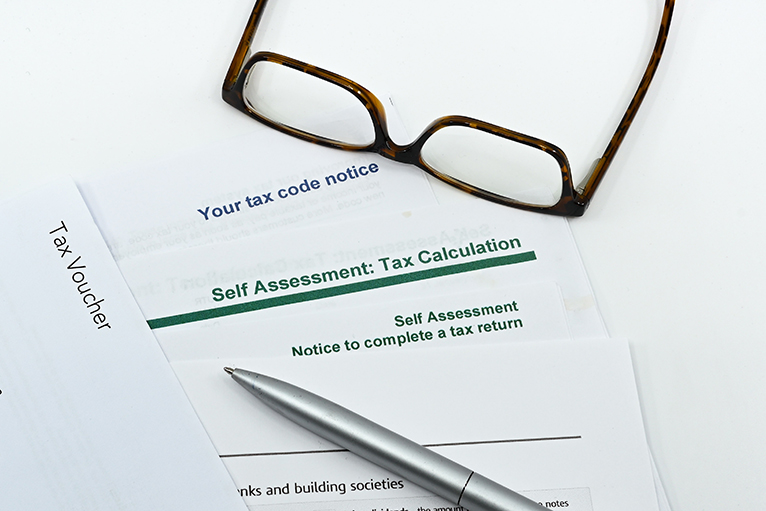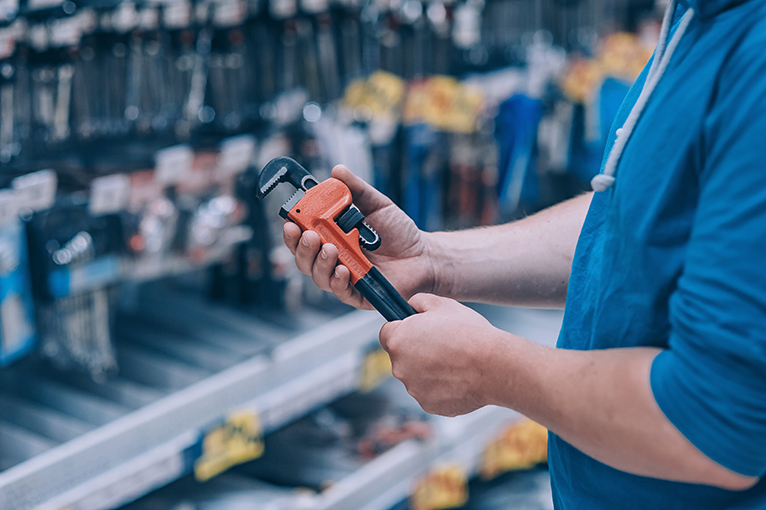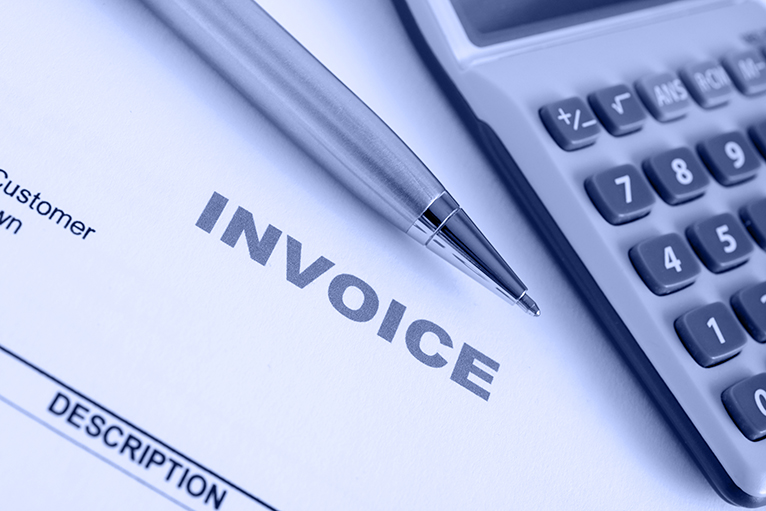A guide to setting up your own trades business
If you’ve spent time perfecting your trade whilst working for someone else, maybe you’re ready to move on and start your own company. Plenty of benefits come with running your own trades business – but there are many responsibilities, too.
Get off to a good start by ticking off these 8 tasks for new small businesses, below.
Contents
- Create a business plan
- Register your business
- Sort out your finances
- Get the required certifications
- Secure your supplies
- Promote your trades business
- Get reviews and ratings
- Stay on top of admin
1. Create a business plan

The first step in starting your own trades business is to create a business plan. Your business plan will describe your business, its goals, and outlines how you’ll achieve them. You can find business plan templates on Gov.uk. Plus, you can get specific advice on writing your business plan online or over the phone, depending on where you live in the UK:
Many banks will ask you to provide a business plan in order to apply for a loan or investment.
2. Register your business

If you earn more than £1,000 in a year through self-employment, then you’ll need to register as a sole trader with HM Revenue and Customs (HMRC – the UK government department responsible for collecting taxes such as VAT).
As a sole trader, you can keep all of your business’s profits after tax, but you’ll also be personally responsible for any losses your business makes. On the other hand, you can set up as a limited company, which is legally separate from its directors but requires more admin. This includes registering with the UK’s registrar of companies, called Companies House.
Find out which registration option is best for your trades business in our blog post: Becoming a sole trader or limited company.
3. Sort out your finances

It can be tempting to buy lots of exciting new tools and other equipment when you’re setting up your business. However, you should make sure to invest some time and money into the financial essentials, such as:
Insurance
Protect yourself from financial loss by taking out insurance. Types of insurance to consider getting include:
- Tool insurance, in case yours get stolen or damaged.
- Public liability insurance, to cover you against any claims made by a member of the public.
- Van insurance, in order to drive your van on the roads legally.
For a more in-depth look at your insurance options, read our advice on tradesman insurance.
Get investment or a loan
Starting up a business can be expensive. So, many small trades business owners choose to take out a loan to get cash flow into their businesses. If you’re considering applying for a loan, it’s very important to carefully consider your options. Speak to an accountant for specific advice.
Many leading UK banks offer business loans for small businesses, including Barclays, Santander and HSBC. Plus, there are also government-backed, unsecured personal loans of between £500 to £25,000 available through the Start Up Loan scheme.
If you’re currently on benefits, you may be able to get a weekly cash allowance to start your own business through the New Enterprise Allowance. If you have a disability or health condition, then you could get an Access to Work grant to help you start your business.
Create a financial plan
A financial plan gives you control over your business finances, so your business doesn’t crash and burn. It also shows you areas where you can save money, allows you to estimate future expenses and gives you a budget to work within.
There are lots of free financial planning templates available online, including:
- The British Business Bank’s Cash Flow Forecast template, to record how much money is likely to come in and out of your business.
- The Prince’s Trust’s Business plan financial tables Excel spreadsheet, which automatically calculates your cashflow, costs and more.
Track your spending
In order to be compliant with HMRC’s Making Tax Digital for VAT (value added tax) rules, you need to keep digital records of your expenditure and income using digital software. Apps such as QuickBooks and Sage One can help you with this. Read more about useful apps for your business in our blog post: The best tech for your trades business.
Talk to an accountant for specialist and expert advice for your trades business.
4. Get the required certifications

Certain types of tradespeople must be registered with industry bodies. These include:
- Gas Safe Register: Gas/heating engineers and any tradespeople working with gas must be registered with the Gas Safe Register, in order to work legally. New applications cost £347 plus VAT (price correct as of 1st April 2021).
- Part P: Electrical installers must follow the Part P requirement of the government’s Building Regulations when working in domestic homes. Read more on the Planning Portal website.
- TrustMark: TrustMark is the government endorsed quality scheme that covers work done in consumer homes. If you register with TrustMark, you’ll need to meet specific requirements. 49 different trades, including builders, carpenters and electricians, can join TrustMark – read the full list on the TrustMark website.
- SafeContractor: SafeContractor is a health and safety accreditation that shows your competency to your clients. Find out more on the SafeContractor website.
You can show potential customers all of your certifications in one place, through the ‘Certifications’ section of your Rated People profile. Read more in our blog post: Update your Rated People profile.
5. Secure your supplies

Buying your building supplies in bulk is a cost-effective way to make sure you’ve got a steady supply of the materials you need. This was particularly relevant early on in the coronavirus (COVID-19) pandemic, when lots of builders’ merchants and other suppliers closed completely and demand for home improvement work increased.
Find out which building merchants are open during the coronavirus (or COVID-19) pandemic in our blog post: Coronavirus: Which building merchants are open to tradespeople?
Make sure that you don’t tie up all of your cash in excess inventory though, as this could take up too much of your monthly budget. To make sure you’re not buying stock when it’s not needed, create a simple inventory spreadsheet that shows how much you’ve got of each product. Then, set up a phone reminder to check the stock level again in a couple of weeks or months – how often depends on how much stock you have. That way, you’ll know when you need a top up. Then, you can find discounts at the UK’s leading trade counters by using Rated People’s Member Benefits Premium.
If you choose to buy your supplies from a wholesaler, make sure to pay your invoice(s) on time. If you don’t, this could harm your reputation, future relationships within your industry and your chances of securing trade references.
6. Promote your trades business

Reaching new customers has never been easier, thanks to online tools such as social media and trades recommendation platforms like Rated People.
Social media
Thousands of homeowners are heading online to find a tradesperson to complete work in their homes. You can boost your online presence by using social media. There’s plenty of platforms to choose from, including Instagram, Facebook and Twitter.

Not using social media could even mean you’ll lose out on potential customers too. 1 in 4 millennials (who spend more than the national average on hiring tradespeople annually) say they won’t hire a tradesperson without social media accounts!
Flooring specialist IdealFlooring has earned 1.1 million TikTok followers just by filming short videos of their day-to-day work. They’ve had some jobs come through the platform too. Read more about tradespeople going viral on TikTok.
Find out more about your social media options in our blog post: Which social media is right for your business?
Create an online portfolio
Potential customers want to see photos of your previous work when they’re looking at your online profiles. A simple online photo album works, as you can upload pictures straight from your phone’s camera roll.
You can create your photo album quickly and easily on your social media pages. If you’re a member of Rated People, tag us in your photos @RatedPeople and we’ll post them on our social media profiles to help you get your name out there.
Find out more about how to take great photos of your work.
7. Get reviews and ratings

Once you’ve completed a job, the work doesn’t stop there! Ask your clients to leave you a review. Around 7 in 10 people will leave a review for a business they’ve used if they’re asked to, so don’t be shy.
Getting reviews is easy on Rated People. Once you’ve completed a job, we’ll send the homeowner an email asking them to leave you a rating. Once you’ve got the review, you’ll get an email to let you know that your review is on your profile and is ready to share using our social sharing feature.
Read more about how great reviews maximise your opportunities to quote in our blog post: Tips for collecting reviews and building your online reputation.
8. Stay on top of admin

From sending invoices to organising your leads, there’s lots of admin that’s involved when you’re running your trades business. Cut down on the time that you spend doing paperwork by using online automation tools including:
- E-invoicing: Online invoicing systems that allows you to track the payment status and have a secure audit trail. Read our 5 simple tips for speedier invoicing.
- Lead organisation tools: View all of your leads at a glance and see how much value they’re are bringing in with Rated People’s Lead Tracker feature. You can add leads from outside of Rated People, too. Read more about managing your leads using the Trades app.
- Cloud storage apps: Store your documents in a secure online data centre. You can share and work on your documents easily with your colleagues through apps such as Google Drive. Read more about cloud storage in our blog post: Data backup: A guide for small and medium-sized businesses.
For more advice for your business, visit our Trade Advice Centre:



